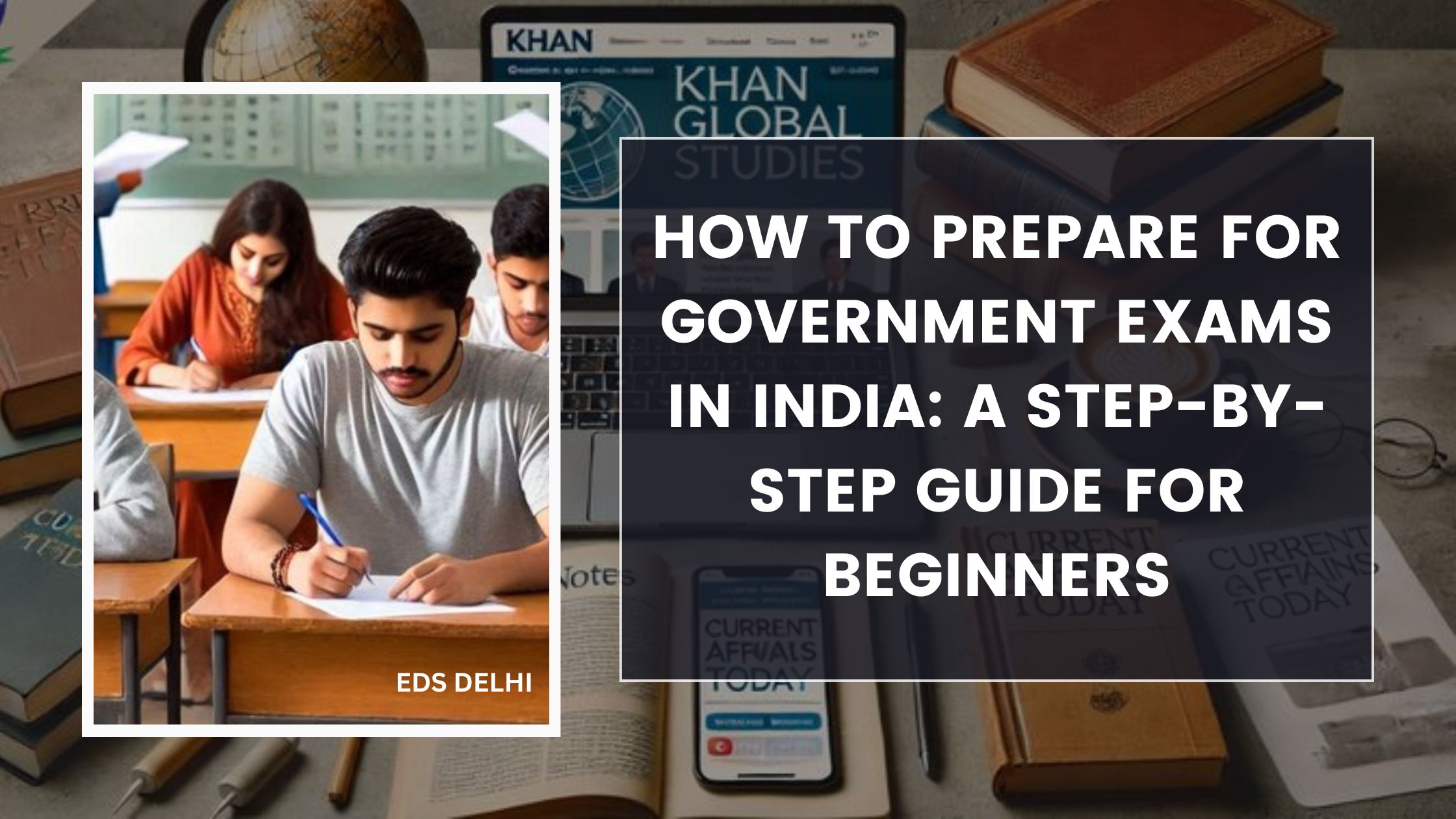Government jobs in India are highly sought after due to their job security, attractive salary packages, and numerous benefits. Every year, lakhs of aspirants prepare for competitive exams like UPSC, SSC, IBPS, SBI PO, RRB, and state-level PSC exams. If you’re just starting your journey, knowing the right strategy is essential to succeed. This comprehensive guide will walk you through the step-by-step process to prepare for government exams in India—designed especially for beginners.
Step 1: Understand the Exam You Want to Appear For
Before you start preparing, it’s important to know which government exam suits your career goals. Different exams have different eligibility criteria, exam patterns, and syllabi.
Popular Government Exams in India:
- UPSC Civil Services – IAS, IPS, IFS
- SSC CGL/CHSL – Central government clerical and officer posts
- Banking Exams – IBPS PO, IBPS Clerk, SBI PO, RBI Grade B
- Railway Exams – RRB NTPC, RRB Group D
- State PSC Exams – Like UPPSC, MPPSC, TNPSC
- Defence Exams – NDA, CDS, AFCAT
Tip: Visit the official website of the exam authority for accurate information about eligibility, age limits, and application process.
Step 2: Know the Exam Pattern and Syllabus
Each exam follows a specific pattern with subjects like:
- General Awareness
- Quantitative Aptitude
- Reasoning Ability
- English Language
- Computer Knowledge (in some cases)
Once you’ve selected your target exam, download the official syllabus and exam pattern. Break it down topic by topic to build a strong foundation.
Step 3: Create a Study Plan
A proper study plan is essential, especially if you’re balancing college or a job. A beginner-friendly timetable helps cover all topics without stress.
How to Make a Study Plan:
- Allocate 6–8 hours daily for study (can be flexible)
- Divide time between subjects
- Include time for revision and mock tests
- Focus more on weak areas
- Include short breaks to avoid burnout
Tip: Use a monthly and weekly planner to track your progress.
Step 4: Choose the Right Study Materials
With so many books and coaching centers out there, beginners often get confused. Start with basic NCERT books (Class 6–12) for General Studies, and then move on to standard guidebooks.
Recommended Books:
- Quantitative Aptitude: R.S. Aggarwal or Arun Sharma
- Reasoning: R.S. Aggarwal or Lucent’s Reasoning
- General Knowledge: Lucent’s GK
- English: Wren & Martin + previous year question papers
- Current Affairs: Newspapers (The Hindu, Indian Express), monthly magazines like Pratiyogita Darpan
Tip: Avoid collecting too many resources. Stick to one source per subject and revise regularly.
Step 5: Stay Updated with Current Affairs
Almost all government exams have a General Awareness or Current Affairs section. Reading newspapers daily and following credible current affairs websites or apps is a must.
Areas to Focus On:
- National and international news
- Government schemes
- Awards and honours
- Sports
- Economic updates
- Important days and events
Tip: Make short notes of important events monthly for easy revision.
Step 6: Practice with Previous Year Papers and Mock Tests
Solving previous year question papers gives you insight into the exam pattern and difficulty level. It also helps in time management.
How to Practice:
- Solve at least 2–3 mock tests per week initially
- Gradually increase to 1 mock test per day
- Analyze your mistakes and work on weak areas
- Use online platforms like Testbook, Gradeup, Adda247, or Oliveboard
Tip: Attempt online mocks if your exam is CBT (Computer-Based Test).
Step 7: Focus on Time Management and Accuracy
Government exams are time-bound. You need to answer as many questions as possible accurately. Practicing regularly will help you improve speed without compromising on accuracy.
Techniques to Improve:
- Use shortcuts and tricks for maths
- Practice reading comprehension daily
- Improve typing speed for descriptive papers (like UPSC mains)
- Solve puzzles and logical reasoning games
Tip: Use a stopwatch while solving questions to simulate real exam conditions.
Step 8: Join a Coaching Class or Online Course (Optional)
While self-study is enough for many exams, coaching can help if you’re unsure where to start or need expert guidance.
Pros of Coaching:
- Structured syllabus
- Regular mock tests
- Doubt-clearing sessions
- Motivation and discipline
Online platforms like BYJU’S, Unacademy, and StudyIQ also offer affordable courses with live classes and recorded sessions.
Tip: Choose coaching only if it suits your learning style and budget.
Step 9: Stay Healthy and Positive
Preparation can be long and stressful. But your health—both physical and mental—is crucial for success.
Self-Care Tips:
- Eat balanced meals and stay hydrated
- Exercise regularly or practice yoga/meditation
- Sleep at least 6–8 hours daily
- Avoid negative thoughts or overthinking
Tip: Celebrate small wins and reward yourself for reaching study goals.
Step 10: Be Consistent and Patient
Success in government exams doesn’t happen overnight. It requires consistent effort, discipline, and patience. Don’t get discouraged by initial failures.
Stay Motivated By:
- Setting realistic goals
- Following motivational pages or YouTube channels
- Surrounding yourself with positive people
- Believing in your preparation
Tip: Remember, lakhs apply, but only the most consistent and focused succeed.
Final Thoughts
Preparing for government exams in India can be a life-changing journey if done right. As a beginner, your focus should be on understanding the exam, building a strong foundation, and staying committed to your goals. With the right guidance, dedication, and smart planning, cracking any competitive exam is absolutely possible.
Check The Upcoming Govt. Exam Click Here
